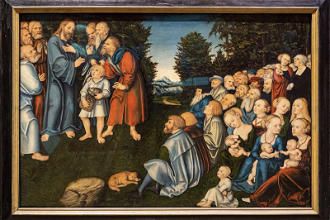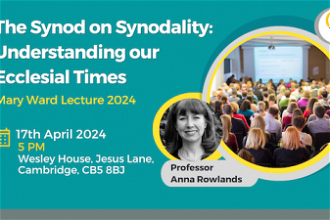Report from Gujerat, CAFOD has sent us this article by Caroline Lynch
Within days of the earthquake in Gujarat, CAFOD and other Catholic agencies worldwide joined together to comfort the survivors of India's worst ever quake disaster. The solidarity of Catholics in England and Wales had an immediate impact on the ground as CAFOD teamed up with Caritas India to provide much needed relief for those left destitute by their literally earth shattering experience. Only two years earlier, Caritas India responded to the Orissa cyclone crisis and with CAFOD's support provided assistance to over 300,000 families. Once again, Caritas India was needed as a natural disaster had unleashed human suffering on a massive scale. Estimates of the death toll vary from 30,000 to 100,000 people. The roads of Gujarat are lined with timber piles to feed the funeral pyres as people cremate their loved ones according to their Hindu religion. In fact, firewood was brought in from neighbouring states to meet the demand. The number of injured is put at 200,000 and hundreds of thousands of people are homeless. Many people have been driven out of their homes by the appearance of cracks that could prove fatal to the building and its inhabitants during an aftershock more than 300 aftershocks have been registered since 26 January. The rich are sleeping in their cars. The poor make do with plastic sheeting or tents donated by the Indian government or international agencies. Tents are in short supply and desperately needed. Out in the open air, people are exposed to blazing daytime sun and freezing night-time temperatures. Already some cases of pneumonia have been reported. In Bhuj - the epicentre of the quake - up to 75 per cent of buildings in the town and surrounding area are understood to be damaged. Before 26 January, there were 150,000 people living in this bustling town. It is reckoned that one third of the population or 50,000 people may have perished in the earthquake. Similarly, residents in Bhachau say the town will have to be razed and then rebuilt from scratch while nearby Anjar also resembles a bombsite. The water supply is one of the areas of concern for the people in this region who have faced drought over the past two years. Rubble from the quake has spilled into wells and ponds. Faulty design and shoddy building standards have been identified as key elements behind the huge level of destruction in Gujarat. It appears that few, if any, homes were earthquake resistant and could not withstand the fury of nature. The Government is to bring cases against builders, engineers and architects who flouted the building regulations. Meanwhile, a two per cent surcharge on corporate and income tax is to be introduced to cover the rehabilitation and rebuilding costs in Gujarat. Local officials have stressed the need for transparency during the reconstruction and advise the use of local materials and skills in the rebuilding which should be sensitive to local traditions. They have also called for the use of local community based NGOs in the rebuilding effort. These are issues which local and international development agencies like CAFOD will keep in mind in the months and years ahead. Caritas India is leading the Catholic Church's response to the crisis. It has launched an appeal for support to India's 16 million Catholics throughout it's 143 dioceses. Funds are needed for food, blankets and family kits for tens of thousands of vulnerable families in Bhachau, Bhuj and Gandhidam. Caritas India is working through the dioceses of Ahmedabad, Rajikot and Baroda to distribute these supplies. Some of the worst affected communities are in the Diocese of Rajkot which is under Bishop Gregory Karotempel. Support has also been provided by Catholic Relief Services and by the Caritas Internationalis Emergency Response Support Team (ERST). The Papal Ambassador in India, Archbishop Lorenzo Baldisseri, recently toured the quake-ravaged areas and witnessed Caritas India's relief operation. Archbishop Baldisseri was accompanied on his visit by the Archbishop of Mumbai, Ivan Diaz, who represented the Catholic Bishops, Conference of India. Archbishop Diaz welcomed the international solidarity for his people. He pointed out that it was the Indians themselves who would face the arduous task of rebuilding Gujarat. Fr John Noronha, Deputy Director of Caritas India, explained: "Hand in hand with this relief work, we are already looking to future rehabilitation efforts to help the people rebuild their homes and earn a living. Livelihoods as well as homes will have to be rebuilt in the weeks and months ahead. Thousands of families will have to start from scratch." He also pointed out the psychological impact of the quake on the people: "We must not overlook the deep trauma that these people will endure for the rest of their lives. Many will need counselling, especially the children. It is hard to imagine the full effect on a child from feeling the earth move beneath their feet, seeing their homes collapse before their eyes or worse again being trapped under mounds of debris for what must have seemed like an eternity. These children need our help."


















